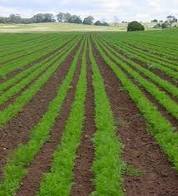In tropical countries like the Philippines and that some parts of Asia, the Pacific rim, Latin America and Africa, crop production need not be expensive.
With raw materials in abundance that come from forests and farms, producing low cost fertilizer is achievable.
In making organic fertilizer, source of raw materials are readily available like plant prunings, corn husks, worm wastes, soya beans, sugar cane tops and the likes; mud from lakes and rivers is another important raw materials for organic fertilizer production as recommended by agriculturists and fertilizer experts.
Organic fertilizer is friendly to crops and the environment. In contrast with synthetic fertilizer which makes the soil acidic and makes the soil barren in the long run. Organic fertilizer is a complete food for crops aside from enriching the soil, it enhances plant growth.
Organic fertilizer production is a result of painstaking research for a technology that converts forest, farm and river wastes into fertilizer. Since raw materials are easily sourced, production cost is low and reaches to farmers at affordable prices.
More significantly, there has never been an instance where organic fertilizer is harming the farmers and the agricultural industry. The use of inexpensive organic fertilizer is highly significant in the light of food shortage and its supply-demand problem worldwide.
Farmers had attributed the problem to unaffordable prices of synthetic fertilizer and irregular weather pattern that brought calamities due to climate change and thus, crop production yields are inevitably low particularly rice and other staple crops.
With the availability of Vermi technology, farmers can now easily produced organic fertilizer at their own backyard. It is an environmentally friendly way of decomposting farm and other agricultural wastes.
Its byproduct is a definitive answer to skyrocketing prices of synthetic fertilizer which its use is now being discouraged by environmentalist.
